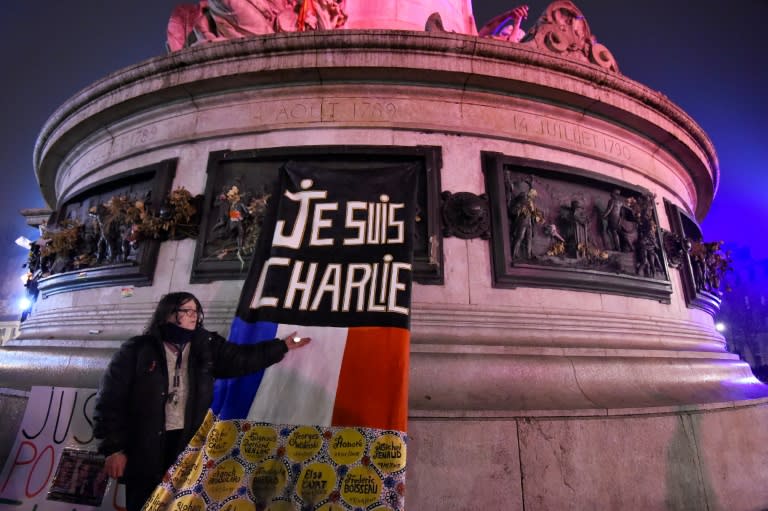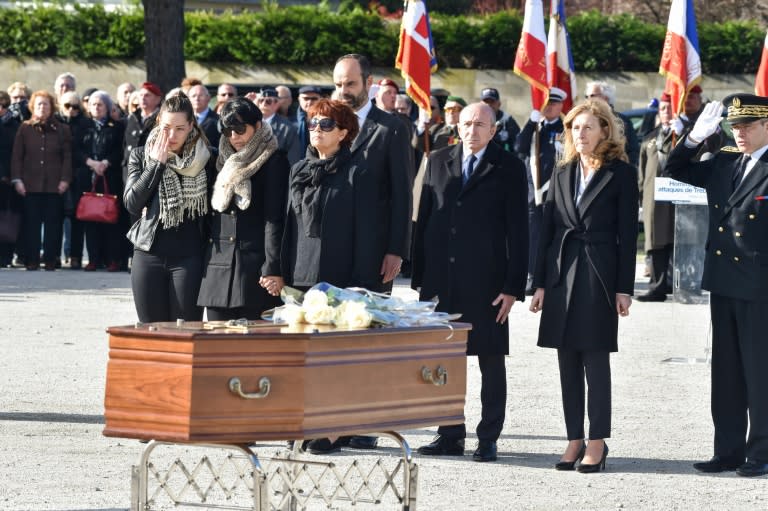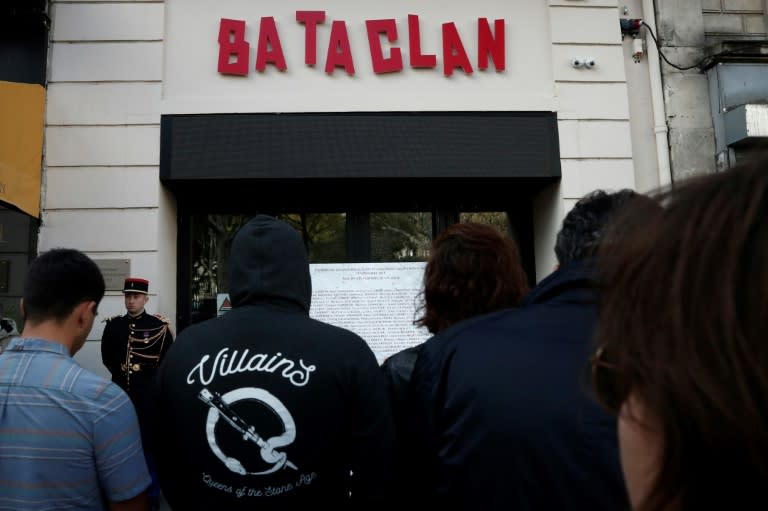Still on alert, France marks three years since Paris attacks
Three years after jihadists gunned down and blew up 130 people in Paris, it's lone-wolf assaults rather than coordinated attacks that are keeping French anti-terror investigators on alert. Survivors and relatives of the dead stood in silence alongside Prime Minister Edouard Philippe outside the Bataclan concert hall on Tuesday to mark the anniversary of France's deadliest ever attack. Mourners also gathered at the other sites hit by the Islamic State group on the night of November 13, 2015: the national stadium north of Paris, and bars and restaurants in the city's bustling 11th district. The Paris attacks, just months after the gun massacre at the offices of satirical magazine Charlie Hebdo, left their scars on the French capital. Gun-wielding soldiers remain posted outside tourist attractions and synagogues, while bags are routinely searched at the doors of department stores. Eight months after the Paris attacks, a lorry ploughed through a Bastille Day crowd in the southern city of Nice, killing 86 people. Many wondered why France seemed to be the target of so much violence, though cities around Europe and beyond, from Spain to Australia, were also hit. And while the threat has not gone away -- a stabbing spree by a man shouting "Allahu akbar" (God is great) left one dead in Paris in May -- counter-terror officials say the focus has shifted. - Smaller-scale attacks - These days, isolated individuals loosely inspired by IS or other extremists are considered a more plausible threat than organised cells like the nine-man team that struck Paris. The numbers are also down: in the year to September, investigators have dealt with 84 terrorism cases, compared to 130 over the same period last year. This year's cases include a slew of thwarted attacks, May's Paris stabbing and a supermarket siege in Trebes, southern France, which left four dead in March. "We have not known a summer this calm for four years," Paris prosecutor Francois Molins told AFP in a recent interview. He identified multiple reasons for the apparent decline in jihadist plots: "The disintegration of Daesh (IS), travel bans (on suspects) and the work of intelligence agencies which has led to networks drying up." Laurent Nunez, the former head of intelligence agency DGSI and current junior interior minister, said IS had "suffered major losses which make a planned attack like the Bataclan" less likely. The group's appeal has been diminishing as its "caliphate" in Iraq and Syria has crumbled, and the number of jihadists returning from the warzone has slowed. Nunez said 261 returned jihadists were in the hands of French authorities, both men and women. Around 700 others are still in Iraq or Syria -- some believed dead, others unable or reluctant to return to France despite IS defeats on the ground. - 'Grey zone' - French counter-terrorism operations are now focused on monitoring known extremists, particularly jihadists coming out of French prisons. Some 450 radicalised prisoners are due to finish their sentences before the end of next year, and some 2,300 others are behind bars. "The principal threat concerns individuals living in France going into action with rudimentary means" such as the lorry used to deadly effect in Nice, Nunez told the Journal du Dimanche newspaper. Molins said another issue increasingly facing French investigators was attackers acting in "a sort of grey zone in which it's difficult to distinguish those who are part of a terrorist conspiracy from those with psychological problems". In the case of a lethal double stabbing in the Paris suburb of Trappes this summer, for example, authorities ultimately concluded that the mentally disturbed perpetrator could not really be considered a terrorist. Survivors of the attacks three years ago, meanwhile, are still struggling with their trauma in different ways. Some avoided Tuesday's ceremonies or left Paris altogether, finding it too painful to stay in the city on the anniversary. Others met at bars to celebrate the fact that they're still alive. "The process of rebuilding isn't done yet -- we'll be doing it for the rest of their lives," said one 45-year-old survivor of the massacre at the Bataclan, who did not wish to give her name. A compensation fund has paid out 85 million euros ($96 million) to victims and their relatives to date, but it expects to pay, in total, 300 million euros. Meanwhile, the only surviving attacker, Salah Abdeslam, is in a prison south of Paris awaiting trial. burs-kjl/cb/rlp





